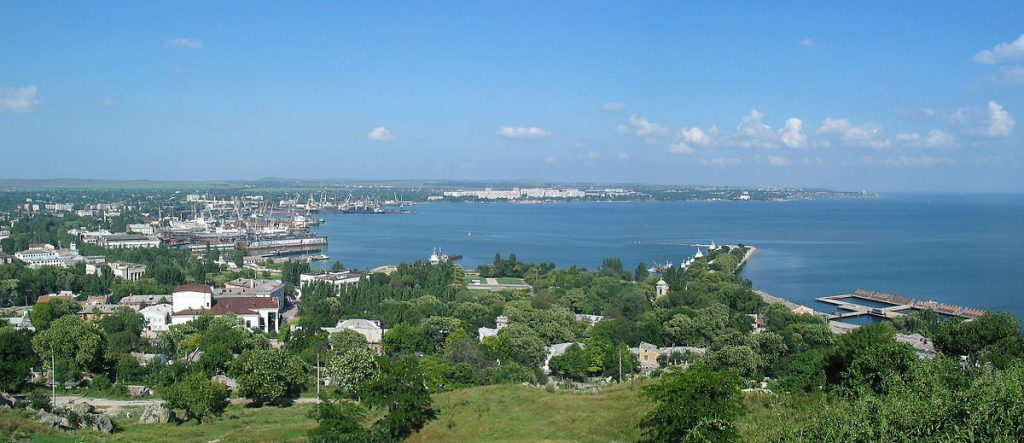
PHOTO: wikimedia
KERCH BAY, RUSSIA – Russian construction workers working on building a bridge in Russia’s Crimean Peninsula stumbled across an amazing find: a statue of a Greek god submerged in the water.
Just two years ago, an archaeological study of the nearby “pottery field” in Russia’s Northern Black Sea Region began. Several excavations have taken place since then that have uncovered over 60,000 pieces of unique terracotta pottery. Most of the pieces originated in the Mediterranean and parts of Asia Minor, crafted sometime between the 5th and 3rd centuries BC, when Ancient Greek philosophy was just being developed in Athens, and the Greek city-states fought a series of wars against the Persian Empire.
Sergei Olkhovskiy, chief of the underwater archaeology unit of the Russian Academy of Sciences, says this statue discovered in Kerch Bay isn’t like the other 60,000 terracotta fragments found nearby. He’s stressed that the artifact is completely unique to the region. This makes it an incredibly important find.
It dates back to the 5th century BC as well, and archaeologists believe that it originated from somewhere in Asia Minor. No one knows exactly how it came to be sunk off the coast of the Crimean Peninsula. Perhaps it was en-route on a trade ship to somewhere else. Unless a wreckage or an inscription is discovered, we’ll never know for sure who the statue was intended for.
The Ancient Greeks were famous for trading their sculpture and pottery. They mostly traded with ports in Scicily, Egypt, Syria, and Carthage. Perhaps the statue was on its way to one of these trade hubs. Wherever it was intended to go, it never made it all the way. We can only hope the people who were transporting it did.

